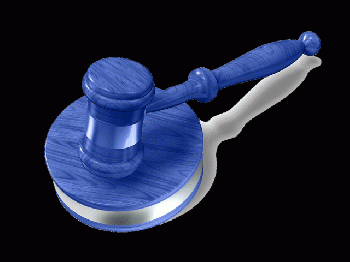April 20 is cannabis culture's high holiday, and the Democratic National Committee celebrated it with fervor this year: Blaze up, get silly, file a bizarre lawsuit accusing the Russian government, Donald Trump's 2016 presidential campaign, and transparency activist group WikiLeaks of conspiring to steal an election.
The suit confirms that after more than a year, special counsel Robert Mueller still hasn't amassed the evidence required for a successful criminal prosecution, requiring proof "beyond a reasonable doubt." A civil suit lowers that bar to "a preponderance of the evidence."
But even that's a long shot. The only credible evidence produced so far implicates only the Trump campaign, not the other two defendants, and only to the same extent that it likewise implicates the Clinton campaign.
That is, both campaigns admittedly tried to tap "Kremlin-connected" sources (defined as "anyone who's ever been in Moscow") for dirt on their opponents. Donald Trump Jr. met with a Russian lawyer in hopes of getting the goods on Hillary Clinton. The Clinton campaign commissioned a British former spy to work his Russian regime sources for salacious tidbits on Trump the Elder.
Central to the suit's claims is alleged "Russian hacking" of the DNC's servers, followed by an embarrassing release of emails showing, among other things, attempts by DNC to rig the 2016 primaries in favor of Clinton and against her main opponent, Bernie Sanders. Problems with the case:
First, the DNC refused to turn those servers over to the FBI for forensic analysis, instead hiring a friendly cybersecurity firm to announce the results it wanted announced.
Secondly, metadata in the "hacked" files released by "Guccifer 2.0" indicates transfer speeds consistent with an internal source at DNC copying the files directly to a USB drive rather than an external hacker accessing the servers.
Thirdly, while the subsequent announcement by the US intelligence community of its conclusions claims methods and IP addresses "consistent with" Russian state hackers, those methods and IP addresses are also "consistent with" every other type of hacker on Earth.
Fourthly and probably decisively, the DNC makes the mistake of dragging WikiLeaks into the matter. The next time WikiLeaks gets caught making a false statement will be the first time. On the other hand, the leaked emails themselves demonstrate that the DNC lies constantly and without hesitation. When it comes to credibility, WikiLeaks is the gold standard and the DNC is something one tries to wipe off the bottom of one's shoe before entering a respectable household. WikiLeaks says no, its source was neither the Russian government nor any other state party.
This lawsuit is simply the latest version of what the DNC has been doing since 2016: Trying to fob off blame for its loss of an election it should have won in a walk off onto someone, anyone, but itself and its insanely poor choice of presidential nominee.
It's very a risky move. In civil suits "discovery" runs in both directions. We're about to learn a lot more about how the Democratic Party really works behind the scenes.





